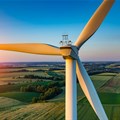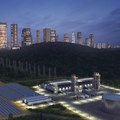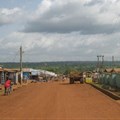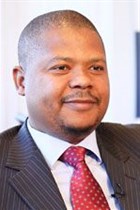The coronavirus (Covid-19) pandemic has disrupted the operating environment for both the public and private sectors as a result of the unprecedented lockdowns and restrictions put in place by countries to curb infections. To navigate this wave of disruption and thrive in its aftermath, business as usual needs to become business unusual to enable organisations and nations to adapt to a rapidly changing economic environment. The buzzwords which are presently trumping conversations are flexibility, innovation and adaptability.
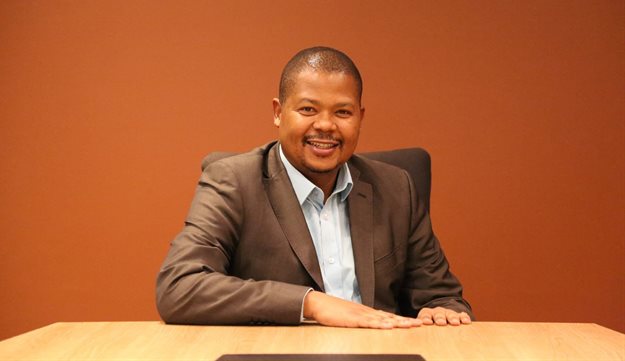
Siyabonga Mbanjwa, regional managing director, Sener
This is particularly true of the energy sector across Africa, as the OECD states that sub-Saharan Africa possesses the lowest energy access rate globally, with around half of the population, or about 600-million people, living without access to electricity. Whilst South Africa isn’t a true reflection of the situation in sub-Saharan Africa, approximately three-million households are still not connected to the national grid. Countries within the region now have the chance to respond to issues using innovation as their driving force. This means creating flexible, reliable and affordable systems supplying readily available and, preferably cleaner, renewable power. These solutions would have to be adapted to suit the unique demands for residential and industrial sectors alike.
The impetus for tackling these issues are there and is built on the premise of Agenda 2063, which is Africa’s vision of accelerated economic and industrial development and, amongst others, calls for full access to electricity and clean cooking. According to the International Energy Agency, in order to achieve that significant goal, African countries would need to drastically increase the average number of people gaining access to electricity from 20 million to 60 million annually.
Converting challenges into opportunities
The Integrated Resource Plan 2019 (IRP 2019) represents a significant opportunity for South Africa to diversify its energy mix that is currently heavily dependent upon coal. In addition, it also presents the industry with the chance to upskill the existing energy sector-specific workforce.
Within the latest IRP 2019, the South African government details its power generation roadmap including the anticipated decommissioning of 24,100MW of coal-fired power plants in favour of green energy solutions like solar power and wind farms. Eskom’s Research and Innovation Centre has already started acting on this by issuing an Expression of Interest (EOI) for Decommissioned Power Station Repurposing that is aimed at developing innovative technology solutions to support low carbon growth, enterprise development and sustainable job creation at Komati, Grootvlei and Camden power stations. In addition, the plan further envisages the gradual closure of older coal plants amounting to a total of 28GW by 2040 and 35GW by 2050, which translates to coal power representing less than 30% of the energy mix by 2040 and even less (around 20%) by 2050.
As reiterated in the latest Covid-19 Supplementary Budget Speech, South Africa doesn’t have the luxury of holding fast to old solutions as the answer. This presents the country and continent with the opportunity to quickly employ green solutions which can be harmonised temporarily together with existing solutions. This will help ensure a reliable supply of energy and make for a smoother transition to wholly clean energy solutions such as solar, wind, biomass and waste to energy. This should also be well received where employment is concerned as these opportunities allow for the opportunity to upskill the existing workforce.
Risto Paldanius 17 Jun 2020
Using surplus generation to tackle under-supply during peak demand periods
The IRP2019 also puts storage technologies forward as a potential solution to a lack of supply during high peak demand periods. For instance, solar farms have the ability to generate power that is stored during the day and then, deployed during high peak periods, which are typically evenings.
For example, the Bokpoort 50MW project is the first concentrating solar power plant within South Africa that makes use of a large capacity of storage (slightly above nine hours), is also based on an organic material such as molten salt. This allows for 24/7 solar power production during spring and summer, while having the capacity to produce optimal solar power, at peak, during the autumn and winter seasons.
Outside South African borders, namely in Morocco, three of Sener's thermosolar plants, namely Noor Ouarzazate I, Noor Ouarzazate II and Noor Ouarzazate III, provide a total of 510MWe of power – all of these are equipped with thermal storage systems in order for these to function optimally. These systems enable the plants to continue to produce electricity in the absence of solar radiation and allows for round the clock production during certain periods of the year.
Sebastian Sterl & Robert Brecha 5 Jun 2020
Just some of these solutions include the likes of battery systems, compressed air energy storage, flywheel energy storage, and hydrogen fuel cells.
Locally and, back in 2018, Eskom revealed a flagship 360MW/1440MWh battery energy storage systems (BESS) project, through which the utility plans to set up within 90 locations in the Western Cape, Northern Cape, Eastern Cape, and KwaZulu-Natal.
Though the investment in battery storage technologies and the use of renewable energy to complement traditional sources of power, such as coal and gas, South Africa, along with the countries on the continent, will be much better equipped to ensure reliable and cleaner power, which can be made more easily accessible to the inhabitants of the continent. Moreover, investment in the energy sector will now yield a tremendous return on that investment for decades to come, helping to move Africa’s development needle along speedily.



























